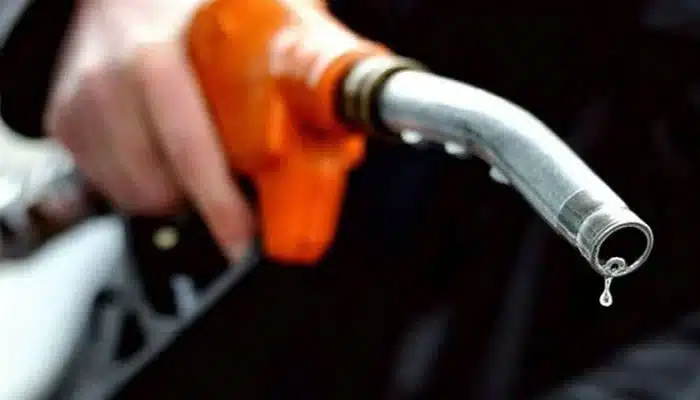We all know that buying gasoline or diesel additives can be confusing and overwhelming.
And that’s especially true if you don’t know which additives to buy and what they do. This blog post will walk you through the most critical additive types and what they do.
We’ll also cover some of the best ways to buy them so you don’t spend too much money on something you don’t need.
Buying gas or diesel additives can be confusing, especially if you’re not familiar with the different types of fuel.
In this article, we’ll outline the most critical additives for gasoline and diesel and explain how to choose the right one for your car.
What are additives, and why do we need them?
Additives are chemicals used in gasoline or diesel fuel to improve their performance. Detergents help clean the engine by breaking down dirt and oil deposits. There are a variety of additives, but the most common ones are detergents and octane boosters.
Octane boosters increase the engine’s ability to resist knocking or pinging during combustion, which can cause damage and make the engine less efficient.
What are gas additives?
You can do a few things to make your engine run better on gas. You can add octane boosters, knock sensors, and gas-saving devices to your car. These additives help the engine run more smoothly and efficiently on gas.
Adding an octane booster is the most common way to improve your engine’s performance on gas. This additive helps your engine run on higher-octane fuels, essential because high-octane fuel burns more cleanly and produces less carbon dioxide (CO2). Gas-saving devices work the same way as knock sensors by preventing the car from running at high speeds when necessary.
A knock sensor detects when the engine is knocking and sends a signal to your car’s computer, telling it to switch to a lower gear or speed up. This prevents the engine from running too hot and causing damage.
Read Next – The Best Fuel Injector Cleaner: How You Can Choose The Right One
What are the different types of additives?
Gasoline and diesel engines use a variety of additives to improve fuel efficiency and performance. This article will discuss the most common types of gasoline and diesel additives, their use, and how you can use them.
The most common types of additives in gasoline are octane boosters, anti-knock agents, and fuel injectors. They all work to improve the combustion process in the engine, resulting in a higher-performance fuel.
Anti-knock agents reduce the chance of knock (a type of engine knock) by machining the amount of air/fuel mixture that detonates prematurely in the engine. Fuel injectors help distribute fuel evenly throughout the cylinders, improving power and fuel economy.
In diesel engines, additives improve emissions control, lubrication, and stability. Emissions control additives reduce nitrogen oxide emissions, while lubrication additives reduce friction in the machine. Stability additives help prevent metal objects from entering the engine and causing damage.
There are many different types of gasoline and diesel additives on the market, so it’s important to research which ones are best for your car or truck. If you have questions about which additives to use or how to use them, consult your car’s or truck’s owner’s manual.
Why use gas additives?
Many people choose to use gas additives in their vehicles because they offer a variety of benefits. These additives can help improve the performance and emissions of your car, making it more fuel efficient. Additionally, many additive products are also effective at reducing the wear and tear on your engine.
One common type of gas additive is an octane booster. This additive helps raise gasoline’s octane rating, which can improve fuel performance and emissions. Additionally, octane boosters can help reduce the wear and tear on your engine.
Some other benefits of using an octane booster include improved acceleration and decreased fuel consumption.
Other additives available for use in vehicles include those that improve air quality, protect against corrosion, and reduce noise pollution. Many of these additives work together to provide several benefits to your car.
By choosing the suitable gas additive for your needs, you can ensure that your vehicle performs at its best and minimizes environmental risks.
Read Next – How Do Air Pollution and Fossil Fuels Affect Our Health?
How to use gas additives
When choosing between gasoline and diesel fuel, many drivers face difficult decisions.
Both powers have their benefits, but which is suitable for your car? In this article, we’ll outline some tips on how to decide which type of fuel is best for your vehicle.
Buying gasoline may be the better option if you’re starting. Gasoline is cheaper than diesel, and most models of cars can run on either fuel. However, switching to diesel might be better if you plan on driving your vehicle for an extended time or regularly travel in areas with low gas prices.
Diesel engines tend to produce fewer emissions than gasoline engines. This is especially important if you live in poor air quality. Additionally, diesel engines are more efficient when moving vehicles through the gears. They’ll typically get you where you need to go faster than a gasoline engine.
However, there are some drawbacks to using a diesel engine. They’re more expensive than gasoline engines, and they require more maintenance. In addition, they don’t work as well in cold weather conditions.
What is the best additive for gasoline and diesel?
The best additive for gasoline and diesel is a fuel additive called octane booster. It helps the engine run more smoothly and reduces the risk of engine knock.
Gasoline and diesel additives can significantly affect performance and fuel economy. Here are the top additive options for gasoline and diesel:
- Injector Cleaner: This additive helps clean injectors and decreases emissions.
- Ethanolamines: These additives help increase fuel efficiency by improving cold start performance, reducing emissions, and growing power.
- Exhaust Fluid Additives: These additives reduce exhaust emissions and protect the engine.
How to add additives to your car?
If you’re driving your car in areas with low or no fuel, you’ll need to add additives to your tank. Various additives are available. Choosing the right ones is essential to add them:
Diesel fuel: Add diesel fuel additive 10-15 minutes before driving. This will help reduce the risk of engine failure.
Gasoline: Add gasoline additive about 1 hour before driving. This will help reduce the risk of engine knock.
Adding additives to your car can make it run more efficiently and cleaner, but choosing the right ones is essential. Here are a few additives you may need:
Gasoline Additive: This fuel additive usually helps reduce carbon monoxide emissions.
Diesel Additive: This is usually a fuel additive that helps improve combustion and reduce emissions.
How to use diesel additives
Diesel additives can help improve diesel engine performance, fuel economy, and emissions. When shopping for diesel additives, select the correct type for your engine and driving conditions.
Generally, diesel additives are classified by their function: oxidation control (OC), fuel quality (fuzzy logic control), or emissions reduction. OC additives work to control nitrogen oxide emissions from the engine. Fuzzy logic control additives reduce particulate matter and hydrocarbon emissions from the engine. Emissions reduction additives reduce NOx, SOx, and CO2 levels in the exhaust gas stream.
To use a diesel additive, add it to the fuel tank before starting the car. Most diesel additives are approved for use with unleaded gasoline. However, you should check the manufacturer’s instructions before using an additive with a different octane rating than what you’re using in your vehicle.
Following the manufacturer’s safety guidelines when adding a diesel additive to your fuel. Additives can increase air pollution levels near an engine if not used properly.
Read Next – Why Every Driver Should Care About Saving Money on Fuel
Conclusion
If you own a business that uses gasoline or diesel as the main ingredient in your products, then it’s essential to understand the additives that go into those fuels.
Not all these additives are bad for our environment, but some can be harmful if ingested or inhaled. In this article, we’ll outline the most common additive categories and give tips on choosing safe additives for your products and the environment.
It knows which additives you need to buy to fuel your vehicle. This is especially true if you’re not familiar with the different types of additives that are available. It cannot be easy. In this article, we will teach you about the general kinds of additives and what they do.
We will also provide a list of websites where you can buy these additives without trouble. So whether you’re looking to save money or ensure that your vehicle runs optimally, read on for more information!

Factor X


